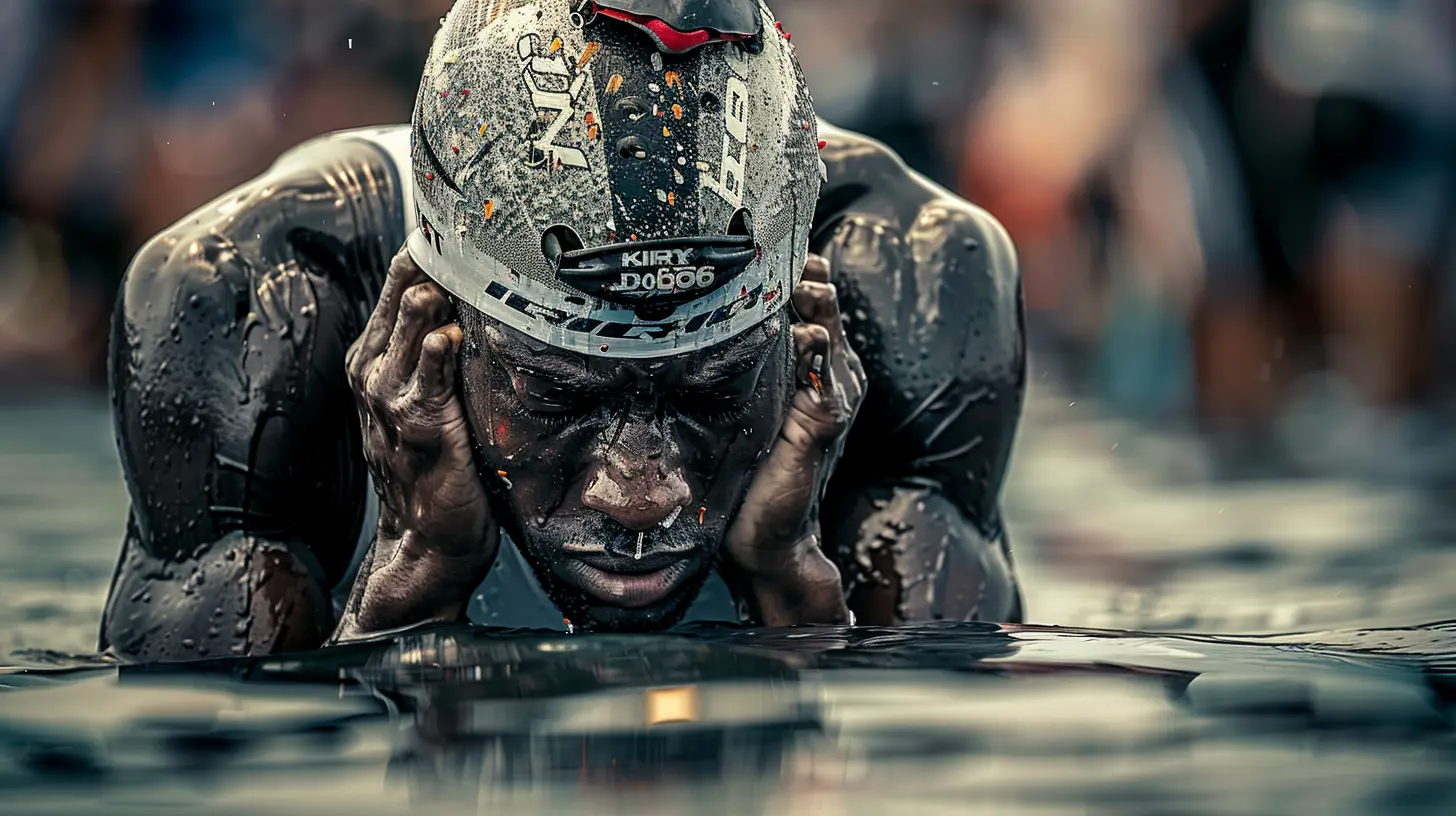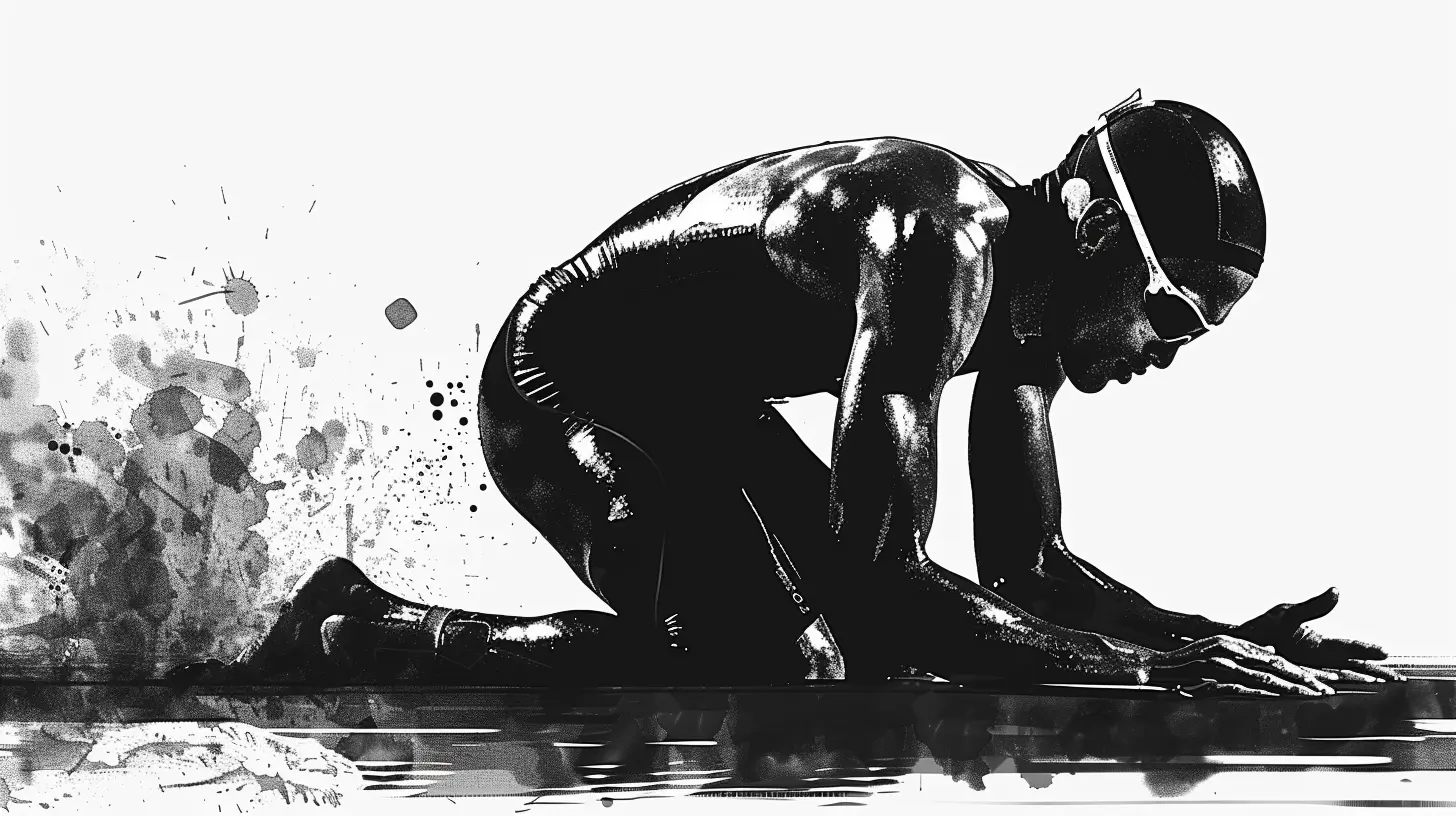The Psychology of the Finish Line: How to Push Through the Pain
26 February 2025
We’ve all been there, right? You’re running that last mile, pushing through the final set of squats, or maybe grinding through the last quarter of a game. Everything in you is screaming to stop. Your body hurts, your lungs are burning, and your mind is practically begging to throw in the towel. Yet, somehow, many athletes manage to push through and finish strong. How do they do it? What separates those who give in from those who keep going?
It’s not just physical training. Nope, the secret sauce is largely mental. It’s about mastering the psychology of the finish line. In this article, we’ll delve deep into why our brains fight us when we’re nearing the end of a challenge, and more importantly, how we can push through the pain and cross that finish line — be it literal or metaphorical.

Why the Finish Line Feels So Tough
Ever notice how the last part of any race or workout always feels the hardest? It’s not just in your head... well, actually, it kind of is. There’s a lot of psychology at play when you’re approaching the end of a physical challenge.The Brain’s Survival Mode
Your brain’s number one job is to keep you alive — it’s wired for survival. When you’re pushing yourself physically, your brain interprets the discomfort as a potential threat. It doesn’t care about your race time or your PR (personal record); it just wants you to stop before you hurt yourself. This is where that inner voice starts to get loud. You know the one: “You can’t keep going. You need to stop. You’re going to collapse.”This is your brain’s way of trying to protect you from what it perceives as harm. The closer you get to the finish line, the more intense this protective mechanism becomes. It’s like your brain sees the end in sight and goes, “Okay, we’re almost there, but let’s not get reckless. Let’s take it easy.”
Mental Fatigue vs. Physical Fatigue
There’s a fascinating relationship between mental fatigue and physical fatigue. Often, we think it’s our bodies that are giving out, but in reality, it’s our minds that are throwing in the towel first. Studies have shown that mental exhaustion can amplify the perception of physical pain. In other words, when your brain is tired, your body feels more tired than it actually is.This is why athletes often talk about the importance of mental toughness. To push through the pain, you need to train your brain just as much as your body.

The Role of Motivation: Why Are You Doing This?
Motivation is the fuel that powers you through the pain. When you’re feeling like you can’t take another step, your “why” becomes crucial. So, what’s your reason for pushing through?External vs. Internal Motivation
There are two types of motivation: external and internal. External motivation comes from outside sources — maybe you want to win a medal, impress someone, or hit a specific goal. Internal motivation, on the other hand, is driven by personal satisfaction. It’s about the joy of running, the pride in pushing your limits, or the sense of accomplishment you feel when you finish.Both types of motivation can help fuel your performance, but studies suggest that internal motivation tends to be more sustainable. When you’re doing something because you genuinely love it or because it aligns with your values, you’re more likely to push through the pain.
Visualizing Success
One powerful psychological tool that many elite athletes use is visualization. Before they even start their race or competition, they’ve already mentally crossed the finish line. They’ve imagined the feeling of triumph, the crowd cheering, and the satisfaction of completing the challenge.When you visualize success, you’re essentially tricking your brain into believing that you’re capable of achieving it. This can be a powerful motivator when you’re deep in the pain cave.

How to Push Through the Pain: Practical Strategies
Alright, now that we’ve covered the psychology behind why it’s so hard to push through the finish line, let’s talk about some practical strategies you can use to train your mind and body to keep going.1. Break It Down
When you’re facing a big challenge, it can feel overwhelming to think about how much further you have to go. Instead of focusing on the entire distance or the whole workout, break it down into smaller, more manageable chunks.For example, if you’re running a marathon, don’t think about the 26.2 miles. Instead, focus on getting to the next mile marker, the next water station, or even the next streetlight. By breaking the race down into bite-sized pieces, your brain is less likely to feel overwhelmed.
It’s like eating an elephant — you do it one bite at a time, right? The same goes for pushing through pain. Focus on the next step, not the entire journey.
2. Practice Positive Self-Talk
Remember that inner voice we talked about earlier? The one that tries to convince you to quit? Well, it turns out you can train that voice to be more supportive. Positive self-talk is a simple but powerful tool for pushing through pain.Instead of telling yourself, “I can’t do this,” try saying, “I’ve got this” or “I’m stronger than I think.” It might sound cheesy, but studies have shown that athletes who use positive affirmations are more likely to persist through tough physical challenges.
The key is to replace those negative thoughts with empowering ones. You’re not just fighting your body — you’re also battling your mind. So, get your mind on your side!
3. Embrace the Pain
Here’s a hard truth: pain is part of the process. Whether you’re training for a 5K or trying to PR on your deadlift, discomfort is inevitable. Instead of trying to avoid the pain, embrace it. Understand that it’s a signal that you’re pushing your limits — and that’s a good thing.Some athletes even use pain as a motivator. They remind themselves that the pain won’t last forever, but the feeling of accomplishment will. So, the next time you’re feeling the burn, remind yourself that it’s temporary. You can endure it, and you’ll be stronger for it.
4. Use Music or Mantras
Music is an incredible motivator. If you’ve ever had a killer playlist pump you up during a workout, you know what I’m talking about. Upbeat music can distract you from the discomfort and give you the extra energy boost you need to power through.If music isn’t your thing, you can try using a mantra. A mantra is a simple phrase that you repeat to yourself to stay focused and motivated. It could be something like “One more rep,” “Keep pushing,” or even just “Finish strong.” Repeating your mantra can help drown out the negative thoughts and keep you focused on the goal.
5. Celebrate Small Wins
Don’t wait until the finish line to celebrate. Every small victory along the way deserves recognition. Maybe you made it through a tough interval, or you managed to push through the last quarter of your workout without stopping. These are all wins.By acknowledging your progress, you’re giving yourself a mental boost. It’s like feeding your brain little bits of encouragement to keep it going. This can help reduce the feeling of overwhelm and motivate you to keep pushing forward.
6. Train Your Mental Endurance
Just like physical endurance, mental endurance can be trained. One of the best ways to do this is to intentionally put yourself in uncomfortable situations during your training. For example, you might add a few extra sets to the end of your workout when you’re already tired, or you could push yourself to run an extra mile when you’re ready to stop.By regularly challenging your mental limits, you’ll build up your tolerance for discomfort. Then, when you’re in a race or competition, your brain will be more accustomed to pushing through the pain.

The Power of the Finish Line
There’s something magical about the finish line. Whether it’s the end of a race, a workout, or a game, crossing that line is a moment of triumph. It’s the culmination of all your hard work, your mental grit, and your physical endurance. And the feeling? It’s indescribable — a mix of relief, pride, and pure joy.But here’s the thing: the finish line isn’t just a physical place. It’s a mindset. It’s about pushing through the pain, embracing the discomfort, and proving to yourself that you’re capable of more than you thought. The psychology of the finish line isn’t just for athletes — it’s for anyone facing a challenge, whether it’s in sports, work, or life.
So, the next time you’re tempted to stop, when the pain feels like too much, and your brain is telling you to quit, remember: the finish line is closer than you think. And you’ve got what it takes to get there.
all images in this post were generated using AI tools
Category:
TriathlonAuthor:

Uziel Franco
Discussion
rate this article
17 comments
Robert Gibson
Fascinating read! I’m intrigued by the psychological strategies athletes use to overcome pain and fatigue. How do mental techniques differ across sports? Are there specific exercises to enhance mental resilience that all athletes could benefit from?
March 31, 2025 at 11:35 AM

Uziel Franco
Thank you for your thoughtful comment! Mental techniques can vary by sport due to different demands and environments. However, exercises like visualization, mindfulness, and positive self-talk are beneficial across disciplines for enhancing mental resilience.
Lulu Burton
Great article! It’s inspiring to see how mental resilience plays such a crucial role in overcoming challenges. Pushing through pain not only strengthens our bodies but also empowers our minds. Keep sharing these insights—they motivate us all to reach our finish lines!
March 23, 2025 at 9:21 PM

Uziel Franco
Thank you for your encouraging feedback! I'm glad you found the insights on mental resilience inspiring. Let's keep pushing through together!
Olympia McIntire
Great insights on the mental aspects of endurance! Emphasizing the importance of visualization and positive self-talk can truly help athletes overcome pain. Sharing personal experiences or techniques could further enhance understanding and motivate readers to push through their limits. Keep it up!
March 18, 2025 at 5:17 AM

Uziel Franco
Thank you for the thoughtful feedback! I completely agree that personal experiences and techniques can inspire and deepen understanding. I appreciate your encouragement!
Valen Patterson
This article skillfully captures the complex interplay between mental resilience and physical endurance. It highlights how the finish line symbolizes not just a goal, but a profound mental challenge, emphasizing that overcoming psychological barriers is as crucial as physical training in sports.
March 17, 2025 at 1:33 PM

Uziel Franco
Thank you for your insightful comment! I'm glad you found the connection between mental resilience and physical endurance meaningful.
Reina Meyers
Great insights! Understanding the mental game at the finish line is crucial for athletes. It’s all about resilience and determination. Can't wait to apply these strategies in my next race! Keep it up!
March 16, 2025 at 9:37 PM

Uziel Franco
Thank you! I'm glad you found the insights helpful. Best of luck with your next race!
Sable Long
Crossing the finish line is more than a physical achievement; it's a mental triumph. The interplay of pain and perseverance reveals our true character. Embracing discomfort not only builds resilience but also deepens our understanding of self. In sports, as in life, the mind often leads the body.
March 16, 2025 at 4:12 AM

Uziel Franco
Absolutely! The finish line symbolizes not just physical endurance, but a profound mental victory that shapes our character and resilience. Embracing discomfort reveals our true selves and strengthens our resolve.
Elsinore Snyder
Crossing the finish line transcends physical endurance; it's a profound testament to mental resilience. In pain, we discover not just our limits, but the vastness of our potential.
March 13, 2025 at 11:46 AM

Uziel Franco
Thank you for this insightful comment! You're absolutely right—mental resilience is key in overcoming challenges and realizing our true potential.
Renata McKellar
The article effectively highlights mental resilience; however, it could explore the role of community support more deeply.
March 10, 2025 at 12:39 PM

Uziel Franco
Thank you for your feedback! I appreciate your suggestion to delve deeper into community support—it's an important aspect of resilience that I'll consider for future discussions.
Maddison Pratt
Mindset is key to conquering the finish.
March 10, 2025 at 4:31 AM

Uziel Franco
Absolutely! A positive mindset can transform pain into motivation, driving us to the finish line with resilience and determination.
Monica Elliott
Oh, absolutely! Because nothing says “pure bliss” quite like dragging your exhausted body across a finish line while wondering why you didn’t just take up a nice, relaxing hobby like knitting. Who knew emotional breakthroughs could come with so many blisters?
March 9, 2025 at 1:23 PM

Uziel Franco
Haha, I get it! The journey can be tough, but those breakthroughs and growth often come with a little discomfort. Knitting can wait!
Haze McVicker
What an insightful read! Understanding the mental aspect of pushing through pain really changes the game. It's all about resilience and mindset—perfect motivation for athletes at any level. Keep pushing forward!
March 9, 2025 at 3:56 AM

Uziel Franco
Thank you for your thoughtful comment! I'm glad you found it insightful—mental resilience is indeed key for athletes. Keep pushing forward!
Flynn Kirkland
This article brilliantly explores the mental strategies athletes use to overcome physical challenges. Understanding the psychology behind perseverance can inspire both competitors and casual runners alike.
March 8, 2025 at 1:27 PM

Uziel Franco
Thank you for your kind words! I'm glad you found the insights on mental strategies inspiring.
Valen Lopez
Every finish line is a testament to resilience. Embrace the struggle, for it molds champions. The pain is temporary, but the pride of overcoming it lasts a lifetime. Dig deep, push through, and let your determination redefine what's possible. You are stronger than you think!
March 8, 2025 at 4:56 AM

Uziel Franco
Thank you for your inspiring words! Embracing struggle truly transforms us and highlights the power of determination in reaching our goals.
Thalia McGrath
This article brilliantly captures the mental strength required to overcome challenges. It's inspiring to understand the psychology behind perseverance. Well done!
March 7, 2025 at 12:17 PM

Uziel Franco
Thank you so much for your kind words! I'm glad you found the insights on perseverance inspiring.
Justice Forbes
Mastering the finish line is all about mindset. Embrace the pain as a catalyst for growth and resilience. It’s not just about crossing the line; it’s about pushing your limits and redefining what’s possible.
March 4, 2025 at 7:44 PM

Uziel Franco
Absolutely! Embracing pain as a growth opportunity transforms the finish line into a testament of our resilience and potential. It's a powerful mindset shift that fuels our journey.
James Forbes
Great article! Remember, every finish line is just a new starting point. Embrace the pain, celebrate your progress, and keep pushing forward. You've got this—every step counts towards your incredible journey! 🏅✨
March 3, 2025 at 9:16 PM

Uziel Franco
Thank you for the encouragement! I completely agree—every finish line brings new beginnings. Let’s keep pushing forward together! 🏅✨
Mindy Harmon
Great article! Understanding the mental aspect of finishing strong can truly transform our approach to challenges. Embrace the pain; it leads to growth!
March 1, 2025 at 5:04 AM

Uziel Franco
Thank you! I'm glad you found it insightful. Embracing challenges is indeed key to growth!
MORE POSTS

Breaking Down the Best Gear for Triathletes

How to Prevent Injuries While Training for a Marathon

How to Handle Fantasy Football Playoff Pressure
![Underdog No More: The Meteoric Rise of [Player Name]](/pictures/blog/small/underdog-no-more-the-meteoric-rise-of-player-name_1.webp)
Underdog No More: The Meteoric Rise of [Player Name]

The Hall of Fame: Celebrating Timeless Talent and Dedication

How to Select the Best Tennis Racket for Your Playing Style

All-Star Games Beyond the Court: The Impact on Host Cities

The Hall of Fame: A Look at the Greatest Induction Classes

Esports Coaching: How to Train the Next Generation of Champions

How Social Media is Changing the Sponsorship Landscape in Sports

Extreme Sports Photography: Capturing the Action in Motion